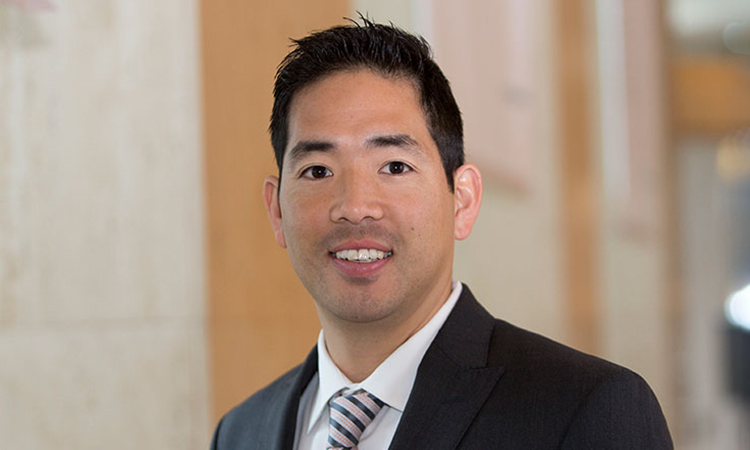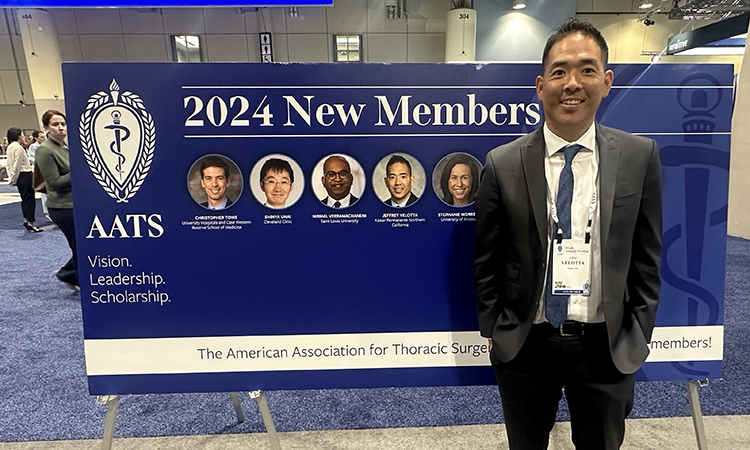Advising patients on the optimal time to obtain lung cancer treatment for early-stage lung cancer has long been up for debate, but recent research findings from Drs. Jeffrey Velotta and Haley Tupper have helped physicians better identify this timing, which can directly improve patient mortality and survival rates.
The duo made news in the April 27 issue of the AATS Daily News , as Tupper – a University of California, Los Angeles Resident General Surgery Physician and researcher within the Kaiser Permanente and UCLA health systems – presented “data from a new multi-center retrospective cohort study that identifies the optimal time from non-small cell lung cancer (NSCLC) diagnosis to surgery to reduce mortality” during the American Association for Thoracic Surgery’s 104th Annual Meeting. Velotta, MD, FACS, an AATS member and Kaiser Permanente Bernard J. Tyson School of Medicine Professor of Clinical Science, is the principal investigator of the study.
The findings may be helpful to physicians who have struggled to advise patients on the best time to schedule surgery to avoid the spread of cancer because of the mixed bag of data available with varying diagnosis dates and due to a lack of standardized guidelines around timing related to surgery performance.




